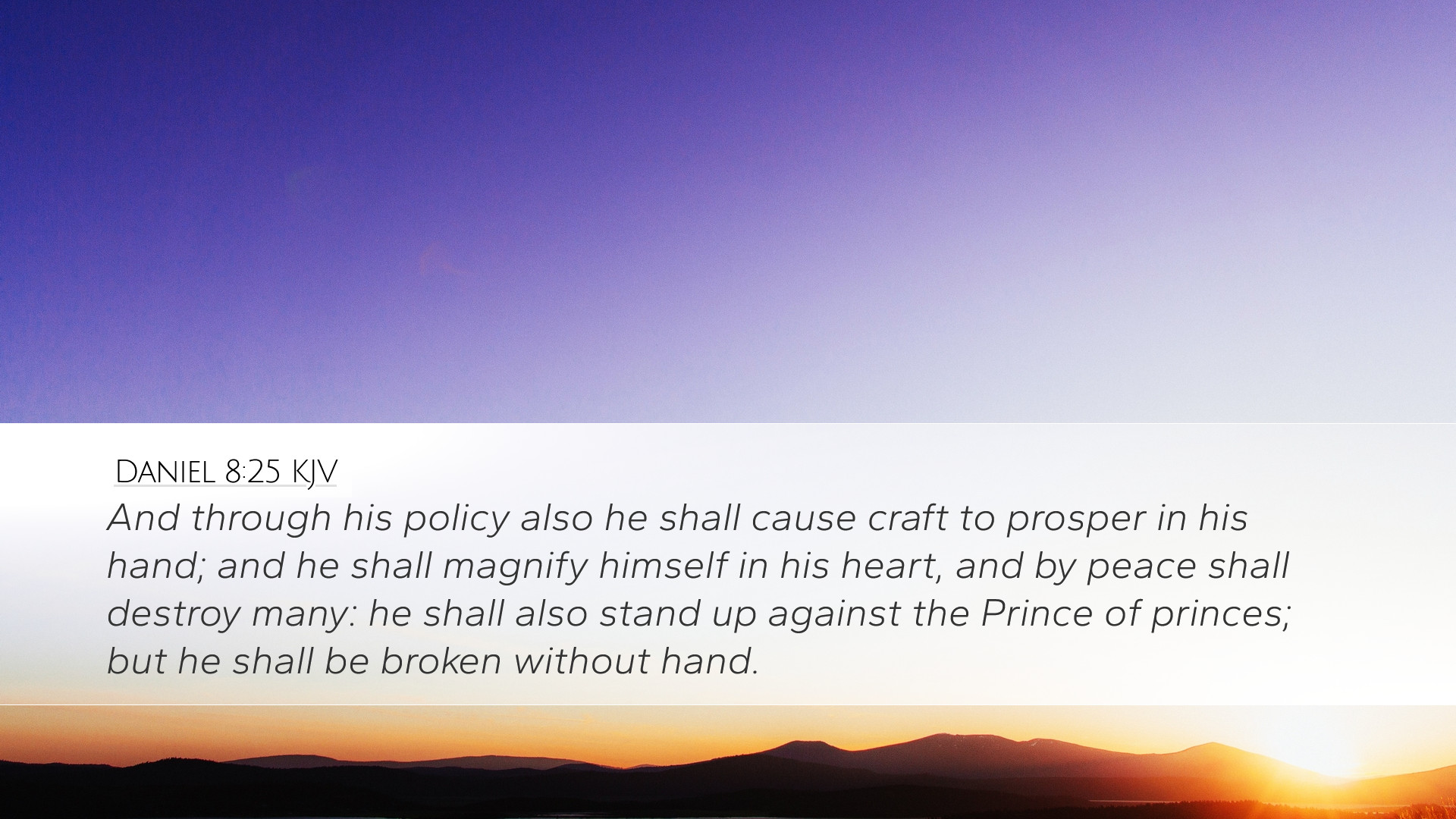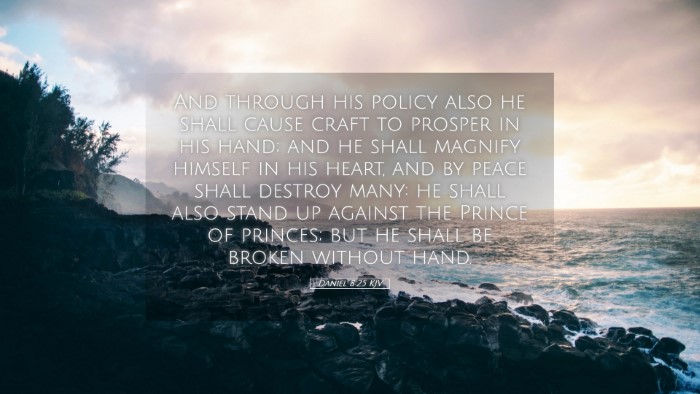Commentary on Daniel 8:25
Daniel 8:25 states: "And through his policy also he shall cause craft to prosper in his hand; and he shall magnify himself in his heart, and by peace shall destroy many: he shall also stand up against the Prince of princes; but he shall be broken without hand."
Context and Overview
The book of Daniel encompasses prophetic visions and the experiences of Daniel during the Babylonian exile. Chapter 8 describes a vision that details the rise and fall of kingdoms, culminating in a specific focus on the "little horn," often understood as symbolizing Antiochus Epiphanes or a future antichrist figure.
The Character of the 'Little Horn'
The verse highlights the deceptive nature of the little horn, showcasing how he will use policy and strategy for self-aggrandizement.
- Craft and Deceit: The term "craft" here suggests cunning and deception. Matthew Henry emphasizes that this figure will prosper through deceitful practices.
- Self-Magnification: It is noted that this figure will magnify himself in his heart, a reflection of pride and hubris that is often condemned in Scripture.
- Peaceful Destruction: The method by which he destroys many is through false peace. Albert Barnes points out that this paradox of using peace to facilitate destruction is a recurring theme in prophetic literature.
- Opposition to the Divine: The phrase "against the Prince of princes" indicates a direct challenge to God’s sovereignty, suggesting a profound spiritual conflict.
Theological Implications
Understanding this verse involves exploring its theological undertones:
- Sovereignty of God: Despite the ambitious endeavors of the little horn, the verse concludes with assurance that he shall be "broken without hand." This denotes God's ultimate authority over human affairs, as Adam Clarke elucidates.
- Historical Fulfillment: Many scholars connect this prophecy to historical events involving Antiochus Epiphanes, who persecuted the Jewish people, embodying the characteristics described in this verse.
- Eschatological View: Additionally, theological interpretations extend to eschatological frameworks, identifying the little horn with the future man of sin or the Antichrist, thus offering a warning for future generations.
Practical Applications
For modern believers, the implications of Daniel 8:25 can be profound:
- Discernment: In an age rife with political and spiritual deception, this verse serves as a call for Christians to seek discernment through Scripture and prayer.
- Hope in God’s Justice: The promise that the little horn will ultimately be broken can instill hope, reminding Christians that no earthly power can prevail against God.
- Awareness of False Peace: In contexts where peace is promoted by those who have ulterior motives, believers are reminded to be vigilant against such deceptions.
Conclusion
Daniel 8:25 encapsulates a complex yet crucial part of biblical prophecy, revealing the traits of a deceptive ruler and underscoring God's sovereign hand in history. The insights drawn from commentaries by Matthew Henry, Albert Barnes, and Adam Clarke enrich our understanding, providing a framework for both theological reflection and practical application.


